When you’re in business, you’re going to be faced with problems to resolve — some big, some small. This happens regardless of how good or bad a business owner you may be. It’s just a fact of life when you’re dealing with other people — suppliers, employees, customers, government, officials.
Most people look at the problem and they look for the easiest option that makes the problem go away (and that’s seen as a solution).
The most common example of this in business is if/when you’re unable to pay your bills or tax. You either:
- go to the bank asking for an overdraft or loan;
- choose who you will pay and who won’t get paid this month (hoping next month things will be better); or
- do nothing (and hope next month things will get better).
Any of these options allow you to move on to the next day, but none of them fix the real problem. So, in the long run you’ll steadily move towards a world of more pain as the unpaid bills and taxes grow, and ultimately be faced with having to shut down your business.
This is because the real problem isn’t that you can’t pay their bills or tax right now. The real problem is closer to one or both of the following:
- You’re not earning enough
- You’re spending too much
Sometimes solving a problem makes things worse
Okay so let’s assume you have a half-decent accountant and they call you out when you ask for their help putting something together for the bank to get the overdraft/loan to help pay your bills. And your accountant advises you (for whatever reason) you just need to sell more (to earn more).
If you don’t understand your business well enough, and you haven’t uncovered the real reason why you can’t pay your bills or taxes at the moment, you could quickly find that selling more makes the problem even worse.
And in the event you do something that makes the problem go away, unless you solved the core reason for the problem, the problem will return (and the next time it will probably bring some friends).
For example. Let’s assume competitors are undercutting you all the time, so you’re not getting enough sales. You believe you have to undercut/discount your competitors to get the sale and get some cash in your bank (so you can pay the bills/tax you currently owe).
So you undercut your competitors, you get the sale, you do the work, and you get the cash. However, if the discounted sale you bank is less than the costs of offering what you sell, you’ll be even worse off the next time you come to pay your bills or taxes … creating an even bigger ‘hole’.
For a small business owner, this can ultimately resulting in the death of the business.
What’s the real problem?
Maybe what you think is the real problem isn’t the real problem after all.
Most of us think we can recognise a problem when faced with one – it’s something that’s getting in your way of doing/getting what you want.
And most of us are okay at finding a solution to whatever problem is getting in our way for the moment, so we can get onto other things.
A few take the time to find the root cause of a problem so it doesn’t come back.
Think of it like gardening and removing weeds – there’s a difference between digging a weed out completely roots and all, or ripping off the leaves and leaving the roots in the ground.
Of the two choices – taking the time to get to the root cause is preferable – so the problem doesn’t come back.
But what if there was a better solution than digging the roots out of whatever problem you’re facing? i.e. maybe there was something you could (or shouldn’t do) that meant there was no problem at all (i.e. no weed and no roots in the first place)?
Can’t see the solutions for the problems?
In this case, maybe the problem isn’t what’s getting in your way (and the choices you make about what to do about it). Maybe the real problem is we can’t see the solution if we’re too busy focussing on the problem?
Because if you could learn to focus on solutions, instead of problems (and how to solve them), the problems wouldn’t be there in the first place.
If we go back to weeding as an example, focussing on solutions that prevent weeds in the first place (rather than accepting weeds and having to get rid of them), could offer the following possibilities:
- Use a glasshouse so weed seeds can’t get in and start growing
- Use a barrier (weedblock fabric) to stop weeds taking root in the soil
- Don’t have land – weeds need soil to grow – use concrete instead (assumes you don’t need/want a garden)
If we apply this approach to the most common business problem of not having enough cash to pay the bills or taxes, it will look something like this.
Problem – not enough cash to pay the bills or taxes
Solution – run your business in a way that you have enough cash to pay your bills and taxes.
Notice the solution does not focus on cash. It focuses on you running your business in a way that results in you having enough cash and the so called problem becomes irrelevant.
The difference is all about what you focus on
Too long ago now, while snowboarding in Canada, I had an opportunity to snowboard off-trail through trees. Having never snowboarded through trees before, I thought I needed to keep an eye on the trees to make sure I didn’t hit them. It turns out I couldn’t have been more wrong. The trick is to focus on the gaps between the trees instead and aim for them.
It seems a bit silly right? Not so much when you think about the human brain and how we like to focus on problems. Drive on any motorway where there’s been an accident and you’ll see what I mean. Almost everyone annoyingly slows down to see what happened.
You get what you focus on!
So back to me snowboarding through trees. Even though I am focussing on not hitting the trees, I’m thinking about the trees and not the gaps between them. Which means, yes, you guessed it, I hit a tree (the first one actually) … even though I was 100% focussed on not hitting the tree. Luckily I didn’t hit it too hard (just hard enough to hurt my pride). After that one tree, I changed how I approached snowboarding through trees and focussed on the gaps between the trees – and had a lot more fun.
In business, if you focus on the cash (or lack thereof), you invariably aren’t looking at the customers or your business, and odds are that in the long run your business is going to suffer.
If you focus on running your business in a way that results in you having enough cash to pay your bills and taxes, then you will always have enough money to pay your bills and taxes.
So how do you do that?
The simple answer is by:
- Knowing the rules of business and playing within the rules that apply to your business (different rules for different businesses).
- Focusing on doing the small things right, consistently
- Making decisions that improve your ability to stay in business in the long run, not worsen it.
So what are you focusing on? Are you focused on your problems and making them go away, or are you focused on solutions? How’s it going for you?
Do you want help finding solutions to make your problems go away? Give me a call or send me an email to book a meeting with me!
